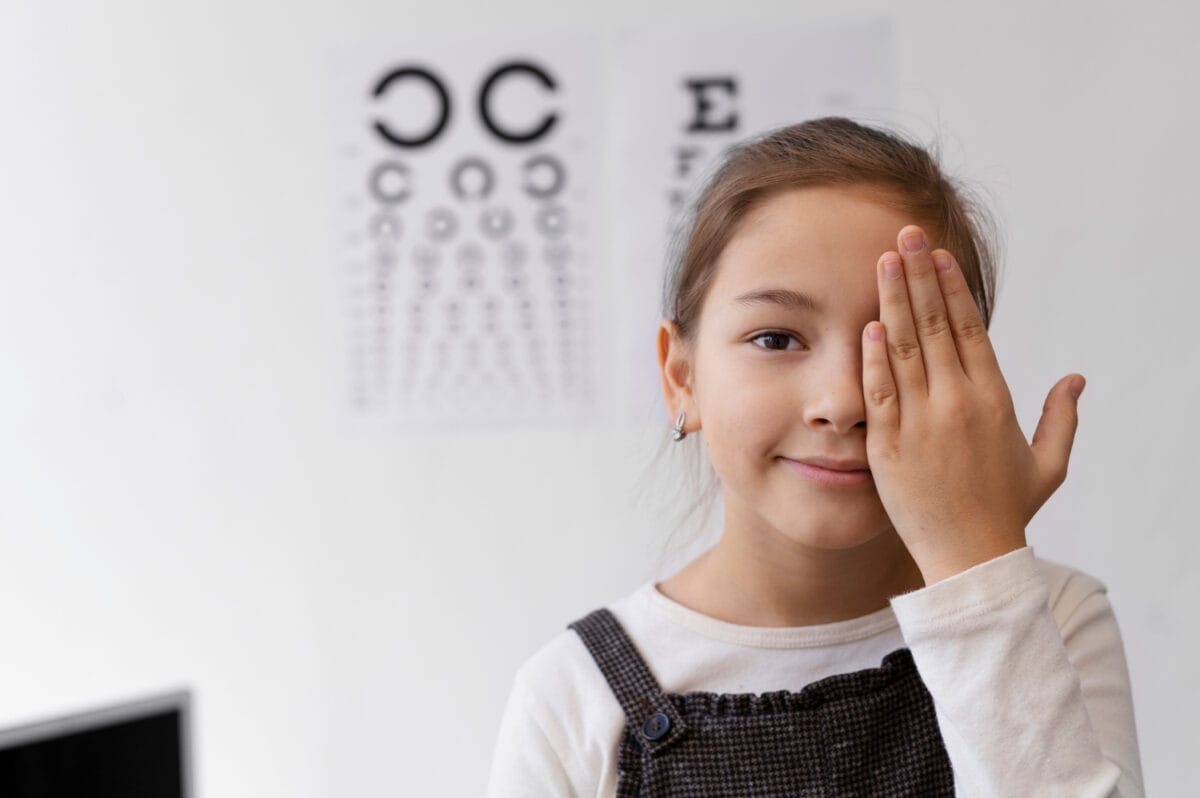Focusing on Little Eyes: June is Child Vision Awareness Month

June is Child Vision Awareness Month. The purpose of this month is “to better educate and counsel the public on children’s vision problems and detection of eye diseases in children and infants. And, to increase the number of school-aged children who have an eye exam by an Optometrist or Ophthalmologist and increase the number of children with learning disabilities who have a developmental vision exam to rule out vision problems.”
In today’s world, 80% of a child’s learning world is visual, whether at home or in the classroom. Children today learn through exposure to computers, cellphones, books and TV’s among others. Hence, numerous children across the U.S. are developing vision issues, with help being provided to only one out of three of kids.
This is why Child Vision Awareness Month was formed — to recognize that numerous kids are suffering from vision problems and eye diseases that can be a great hindrance in their learning and social development.
Some of the more common vision problems include Astigmatism-Farsightedness-Nearsightedness. These refractive errors are most often caused by abnormalities in the surface of the eye that prevents light from properly focusing on the retina. Along with Lazy eye or amblyopia, (when vision in one or both eyes does not develop properly during childhood), cross-eyed or strabismus, drooping eyelids or ptosis, and cataracts.
Though many of these issues are curable, some can lead to blindness if not recognized and treated at an early age. To safeguard your child, pay attention to their eyes and have them seen for an eye examination this month. So go ahead and book an appointment with the Dr Bosak.
“Children’s eye health begins in the newborn nursery and should continue throughout childhood” says Michael Repka, MD, professor of ophthalmology and pediatrics at Johns Hopkins University School of Medicine. For many children, a screening by a pediatrician is not enough. Pediatricians are not equipped or trained beyond the most basic screening functions and cannot determine if the eyes are healthy and functioning properly.
Make it your mission to ensure no child you know is suffering from vision issues. This is necessary because children have no idea whether they can see clearly or not. In fact, they tend to accept their blurred version of the world, assuming it is ‘normal’. They don’t know why they can’t see the board in the classroom, nor can they understand why they are unable to spot their friends at lunchtime. Yes, poor vision can cause a child to suffer academically and socially. This June, make a difference. All you have to do is spread awareness for the cause.
Even if there are no risk factors or family history of eye problems, children need their vision checked by an eye care professional at 6 months, 3 years, and before they begin school.

